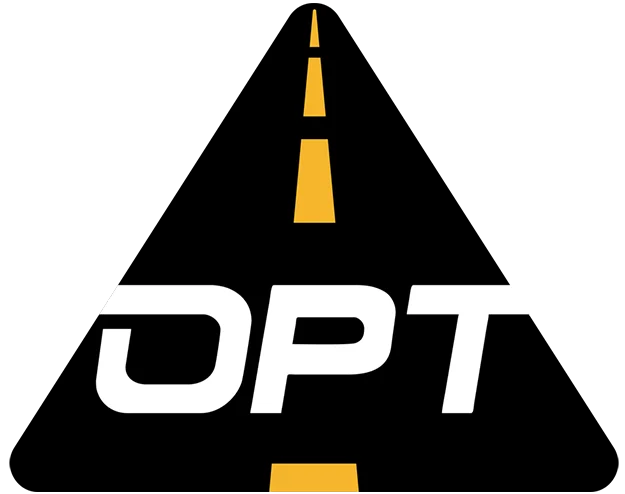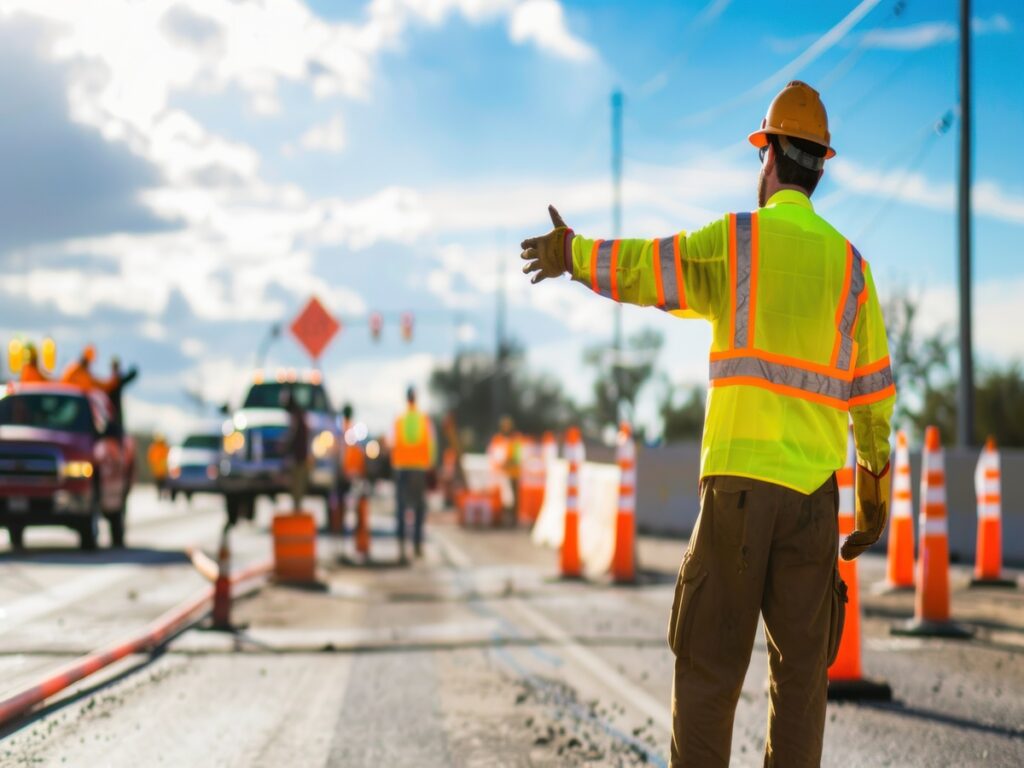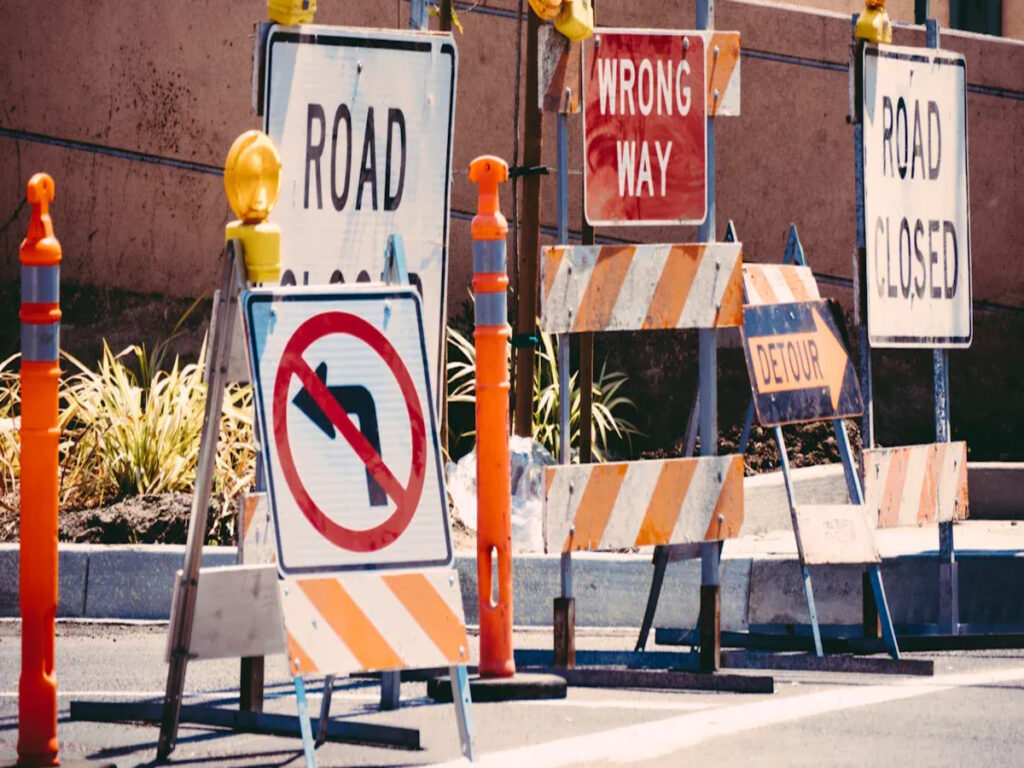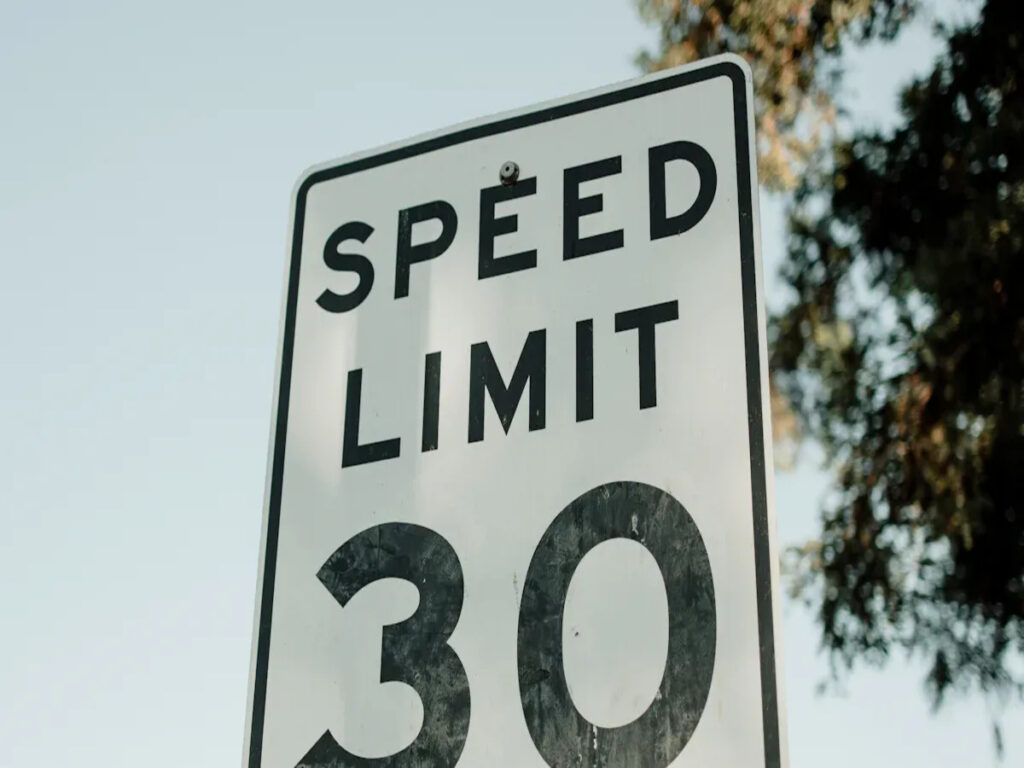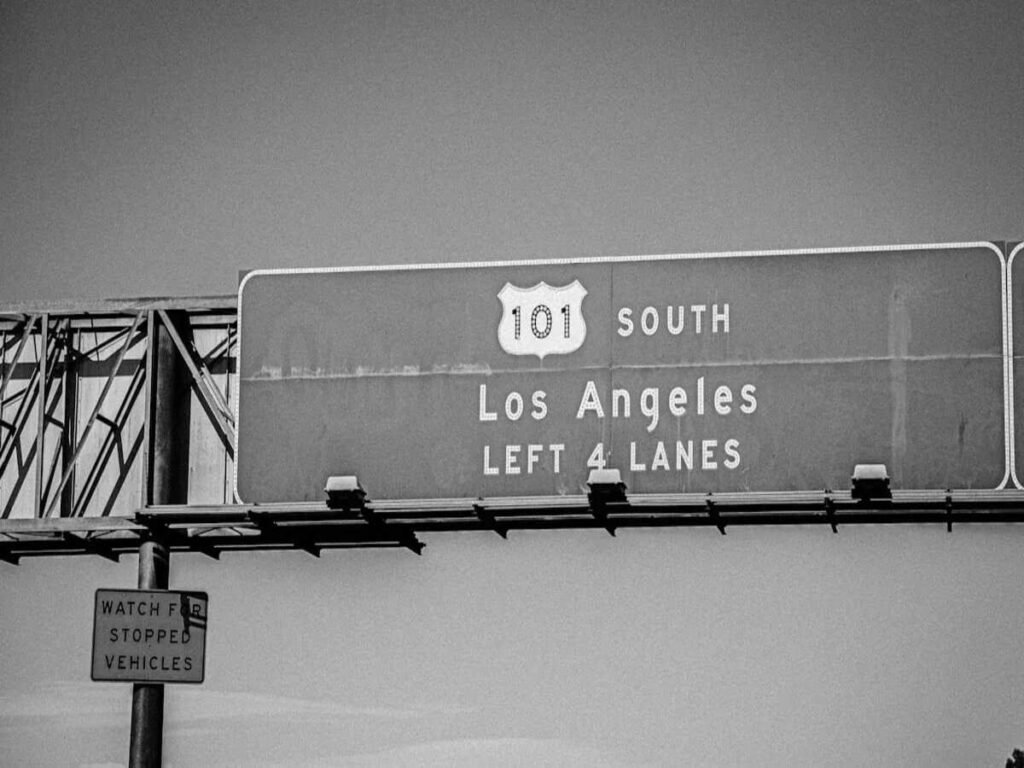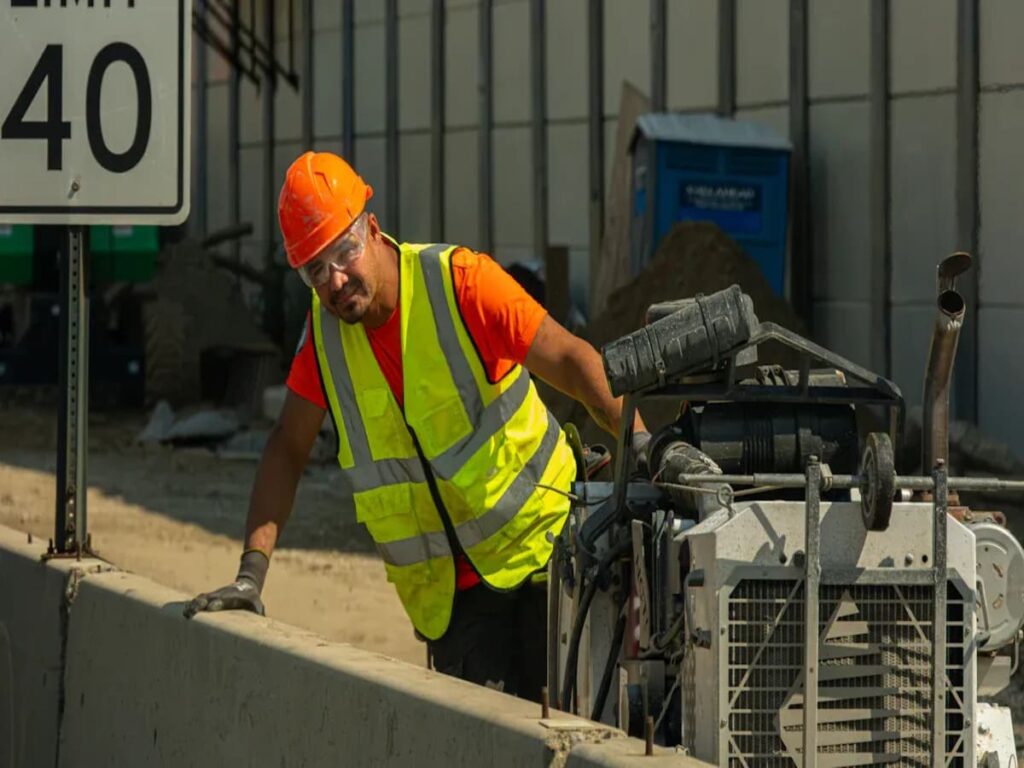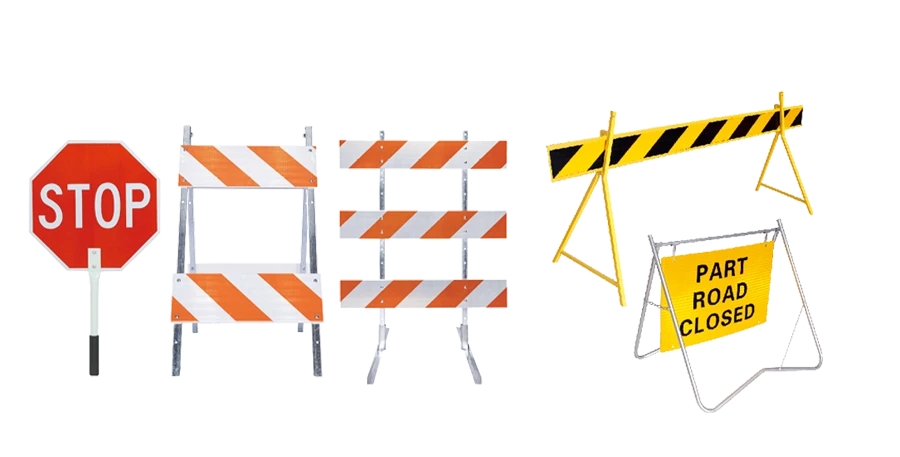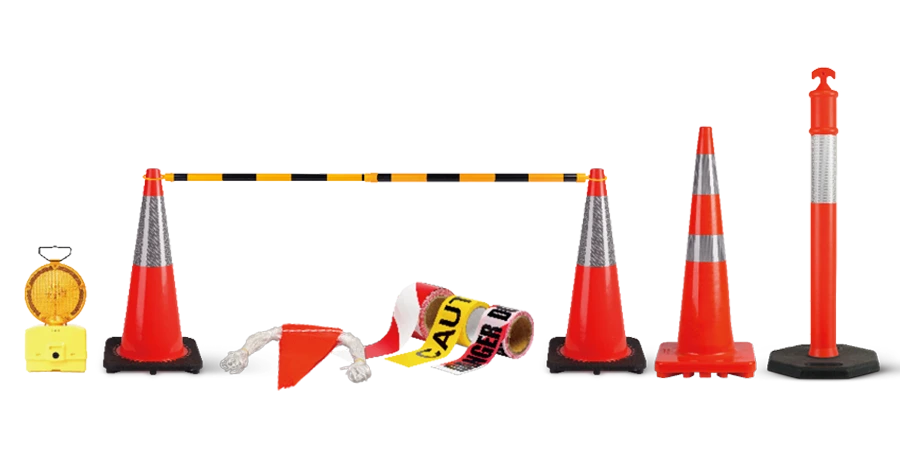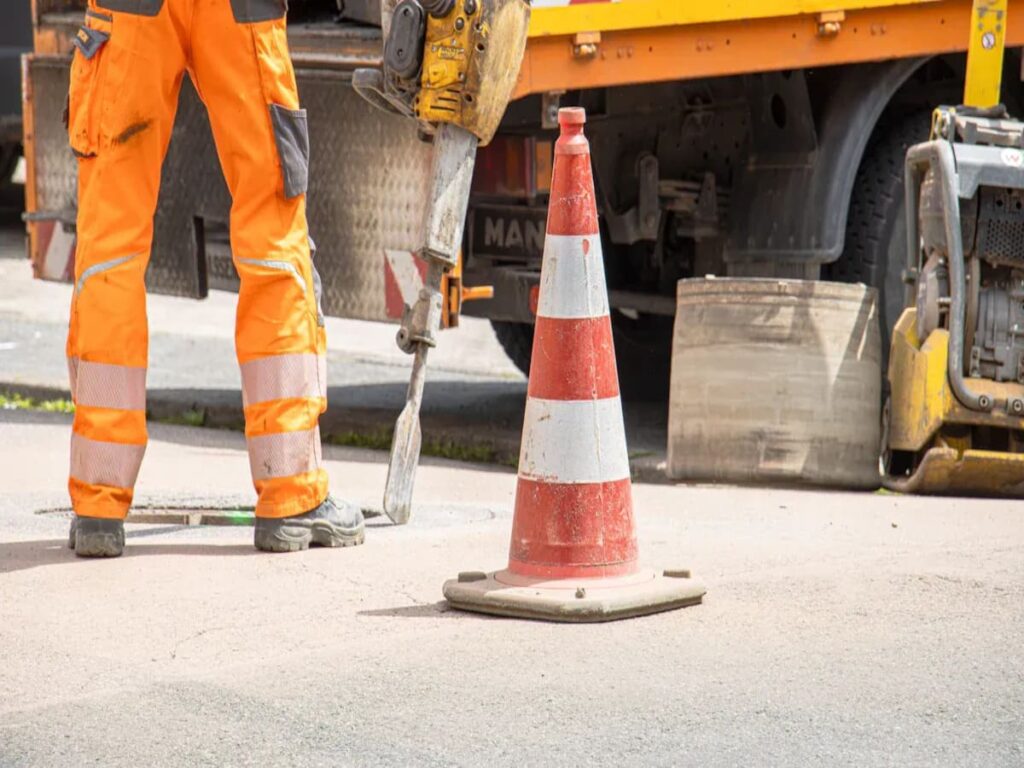
Imagine you see workers picking up trash or planting along a busy highway. They are close to cars and trucks without strong barriers. These places are dangerous for workers. Safety is important because more people are dying each year.
- 에서 2013 에게 2023, deaths in work zones went up by half.
- ~ 안에 2023, 끝났다 898 죽음과 40,000 사람들은 작업 구역에서 상처를 받았습니다.
Doing things early, like putting up highway construction signs, using barriers, 그리고 노동자를 가르치고 있습니다, helps keep people safe. These steps can stop accidents from happening. The table below shows how safety signs and drivers paying attention can lower risks:
| 증거 유형 | 설명 |
|---|---|
| Work Zone Safety Signs | Signs near work zones help drivers notice safety issues. |
| 운전자 행동 | 60% of people say drivers go too fast if no one is watching. |
| 작업 구역 충돌 | 60% of builders say crashes happen, so better safety is needed. |
~에 광교통, 우리는의 중요성을 이해합니다 early safety measures in highway construction. That’s why we offer a wide range of highway construction signs designed to ensure maximum safety for workers and drivers alike. Our signs, 포함 warning signals, 속도 제한 표지판, 그리고 directional markers, help keep traffic flowing smoothly while reducing risks. For professionals working in highway construction or road safety, 광교통 내구성을 제공합니다, compliant solutions that meet all regulatory standards, ensuring your project is safe and efficient from start to finish.
주요 테이크 아웃
- Highway work zones can be very risky. Workers can get hurt by fast cars and flying debris. Knowing about these dangers is very important for safety.
- Clear warning signs and barriers help stop accidents. Good signs tell drivers to slow down and drive safely near work zones.
- Regular training helps workers stay careful. Safety meetings and reminders help stop injuries and keep everyone aware.
- Smart technology makes work zones safer. Tools like real-time monitoring and cameras help lower risks and keep workers safe.
- 안전 규칙을 따르는 것은 매우 중요합니다. Sticking to guidelines helps avoid legal problems and keeps everyone safer.
Work Zone Safety Risks
Highway work zones without full protection have many dangers. You can get hurt by moving cars, flying debris, and drivers not paying attention. These dangers can cause bad accidents and even deaths.
Exposure to Traffic
You work close to traffic every day. Without strong barriers, cars can enter your work area. 이것은 사고가 더 가능성이 높습니다. Almost half of worker deaths in construction zones happen when vehicles hit or run over workers. Collisions with construction equipment cause 14% of worker deaths in highway work zones. The table below shows the main dangers you face:
| Risk Type | Percentage of Incidents |
|---|---|
| Contact with objects or equipment | 35% |
| 미끄러짐, 여행, or falls | 20% |
| Overexertion | 15% |
| Transportation incidents | 12% |
| Exposure to harmful substances or environments | 5% |
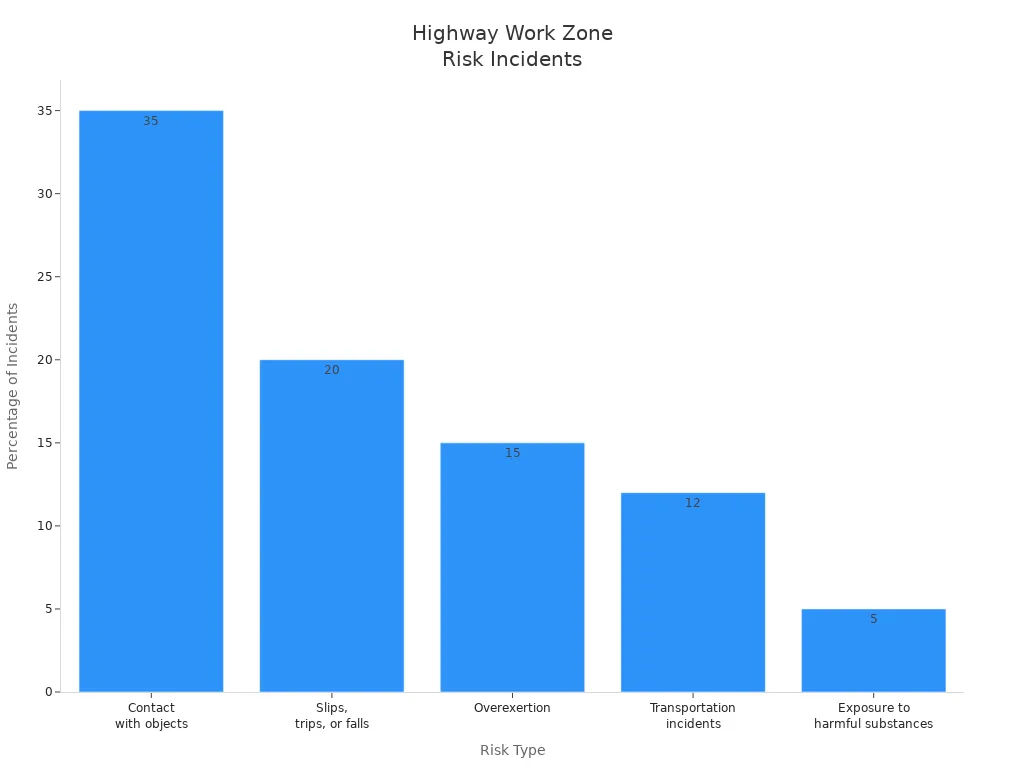
You also work near big machines and changing traffic patterns. This makes the area more dangerous. Being close to moving cars means accidents can happen more often.
High-Speed Vehicle Hazards
Fast-moving cars make work zones riskier. Drivers change lanes quickly in areas without protection. Even if drivers follow speed limits, they may need to stop fast. This can cause unsafe situations and crashes. A two-stage warning system in cars helped lower average speeds by 2.25% and made cars keep more space between each other by 19.02%. These changes help lower accident risks, but fast cars are still a problem.
- Fast cars make lane changes more risky.
- Drivers slow down quickly, 안전하지 않습니다.
- Quick stops and lane changes can cause crashes.
Distracted Drivers
Drivers who are distracted are a big danger in work zones. If drivers use phones or look away, they cannot react fast. A study showed distractions make it hard for drivers to control their cars, 특히 바쁜 작업 구역에서. Looking away from the road is worse than thinking about something else. You have a higher chance of accidents when drivers do not pay attention.
팁: Always watch out for cars that may not see you. Distracted drivers can cause accidents very quickly.
Off-Peak Hour Dangers
Many work zone jobs happen when there is less traffic. You might think these times are safer. But drivers may not expect workers and may not slow down. This false feeling of safety makes accidents more likely. Bad lighting and poor visibility also make it hard for drivers to see you.
Loose debris makes things more dangerous. Crews should secure materials and clean up debris fast. Hazards that are not marked well, like exposed equipment, 느슨한 자갈, or uneven ground, can surprise drivers and cause crashes. Road debris is risky for both workers and drivers.
- Loose debris and materials make accidents more likely.
- Hazards that are not marked well can cause crashes.
- Uneven ground and exposed equipment surprise drivers.
~ 안에 2010, 거기있었습니다 106 deaths at road construction sites. These deaths were 1.5% 에게 3% of all workplace deaths that year. This shows how serious the dangers are in highway work zones.
Highway Construction Signs and Traffic Control
Highway construction signs help keep workers safe. These signs tell drivers about changes ahead. They guide traffic around work zones. Using the right signs and barriers lowers accident risks. This protects everyone on the road.
Clear Warning Signs
Clear warning signs tell drivers about work zones coming up. These signs help drivers slow down and pay attention. Good safety signs follow rules and save lives. A strong traffic control plan uses these signs to guide cars and trucks. Warning signs show drivers when to change speed or lanes. The table below explains how each sign helps:
| 증거 | 설명 |
|---|---|
| Reliable safety signage | Follows rules and keeps people safe. |
| Well-designed traffic control plan | Makes traffic flow better and lowers accidents. |
| 경고 신호 | Tell drivers about speed or lane changes to keep people safe. |
Advance Notice and Dynamic Speed Limits
Put highway construction signs before the work zone starts. 이것은 운전자에게 반응 할 시간을줍니다. Start with a “ROAD WORK AHEAD” 징후. 같은 표지판을 추가하십시오 “RIGHT LANE CLOSED” 그리고 속도 제한 변화. Dynamic speed limit signs change speeds for real-time conditions. These signs help drivers get ready and lower crash risks.
- Work zone signs help drivers notice changes.
- Early signs help drivers slow down and switch lanes.
- Dynamic speed limits change for traffic and weather.
연구 2019 showed speed enforced signs slow drivers the most. Most drivers like dynamic signs more than regular ones.
Temporary Barriers and Cones
Temporary barriers and cones mark work areas and keep workers safe. Barriers give strong protection by stopping or moving cars away. Cones and barrels help drivers see the work zone but do not stop cars. Use barriers for the best safety. The table below compares how well they work:
| 증거 유형 | 설명 |
|---|---|
| 일시적인 장벽 | Separate workers and move cars away from the work zone. |
| Cones and Barrels | Help drivers see the work zone but do not stop cars. |
Flashing Lights and Arrow Boards
번쩍이는 조명 그리고 화살표 보드 enhance sign visibility, effectively capturing drivers’ attention and directing them through work zones. Research indicates that arrow boards reduce rear-end collisions and unsafe lane changes. 에 따르면 전국 고속도로 교통 안전국, advanced arrow boards significantly decrease crash rates. Utilizing these tools allows drivers to anticipate changes earlier and navigate more safely.
팁: Use flashing lights with arrow boards for the best safety in busy or dark areas.
Safety Technology in Work Zones
New technology can help make work zones safer. These tools help workers follow rules and spot dangers early.
Smart Traffic Management Systems
Smart traffic management systems help you handle risks better. These systems let you see problems before crashes happen. You can watch traffic and see how construction changes things. Real-time information helps you make safer choices.
- Smart work zone technology can make safety much better.
- These systems track cars and use cloud tools to protect workers.
- Intelligent transportation systems help everyone drive safer.
- Advanced traffic control systems help make roads safer for all.
메모: Smart systems help you find risks early and keep everyone safe.
Automated Enforcement Cameras
Automated enforcement cameras check car speeds all the time. These cameras use radar to catch drivers who go too fast. When you use these cameras, fewer people speed. 시간이 지남에 따라, drivers learn to slow down and drive safer. 인디애나에서, these cameras helped lower crashes and injuries.
- Automated programs help drivers change and make work zones safer.
- These systems treat everyone the same and are fair.
- You can build trust by letting your community help with these cameras.
Real-Time Monitoring Tools
Real-time monitoring tools use sensors and radar to spot cars that enter work zones by mistake. These tools send alerts to workers right away. You can use AI and cameras to find dangers and warn workers. Quick alerts help you act fast and stop accidents.
- Connected work zones use smart sensors to keep workers safe.
- Real-time alerts help you act fast and drive safer.
- You can plan work zones to use these tools for better safety.
Mobile Safety Apps
Mobile safety apps help you stay safe and organized. These apps make workers easier to see for drivers. You can use them to share news and follow safety rules. Apps give you real-time data and help you report dangers fast. They also help you track near misses and fix problems.
- Apps help you make better safety plans and keep good records.
- You can use apps to get workers to join safety programs.
- One company used an app to report more near misses and cut injuries in half.
팁: Use mobile apps to talk with your team and make every work zone safer.
Physical Safety Barriers
Physical safety barriers help keep you safe from traffic. You must pick the right barrier for each work zone. The best barrier depends on if the zone is moving or not. You can use temporary barriers, 충돌 쿠션, or mobile barriers to protect workers.
일시적인 장벽
Temporary barriers make a strong wall between you and cars. You see these in places where work does not move. They help guide cars and keep them out of the work area. Concrete barriers stop cars from entering the zone. Plastic barriers are good for short jobs. Use temporary barriers when workers need protection for days or weeks.
충돌 쿠션
Crash cushions soak up the force if a car hits them. You put crash cushions at the ends of barriers or near fixed things. These cushions help lower injuries for workers and drivers. You see crash cushions where cars might hit the work area fast. They work best in places where work does not move. They can also help in moving zones if you put them right.
모바일 장벽
Mobile barriers move with the crew as they work. You use them when the job moves along the road. These barriers protect workers doing jobs like sweeping or planting. Mobile barriers let you change the work area as the job moves. You can put up and take down mobile barriers fast. They work well when the work zone keeps changing.
Here is a table that shows how well each barrier works in different zones:
| 배리어 유형 | Stationary Zones | Moving Zones | Analyzed Using Modeling |
|---|---|---|---|
| 일시적인 장벽 | Very Effective | 덜 효과적 | 예 |
| 충돌 쿠션 | Effective | Somewhat Effective | 예 |
| 모바일 장벽 | Somewhat Effective | Very Effective | 예 |
팁: Pick the barrier that fits your work zone and the type of job.
You can change barriers and road design as the job goes on. Follow these steps to make zones safer:
- Make clear rules to check and fix roadside features.
- Take away or move things in the work area to make it safer.
- Make steep slopes less sharp to lower crash risks.
- Keep slope angles the same when you make lanes wider.
- Change clear zone rules to match the obstacles in each work area.
You should check the work area often. Move barriers as the job changes or moves. This helps keep workers safe in every part of the job.
Regulatory Compliance and Risks
MUTCD and State Standards
You have to follow strict rules in work zones. 그만큼 균일 한 교통 통제 장치 매뉴얼 (mutcd) and state standards tell you how to use highway construction signs and barriers. 이러한 규칙은 근로자와 운전자의 안전을 지키는 데 도움이 됩니다.. Here are the main things you must do:
- Traffic Control Plans (TCP): Make a plan for each work zone. The plan needs a site check and a list of safety devices.
- Advance Warning Signage: Put warning signs 500 에게 1,500 작업 구역에서 몇 피트 앞. Use signs like “ROAD WORK AHEAD” 운전자에게 조기에 경고하기 위해.
- 채널화 장치: Use cones and drums to guide traffic. Pick the right size and put them in the right spot.
- Barricades and Barriers: Set up barricades to block areas. Use barriers to keep workers away from traffic. Follow the rules for type and where to put them.
- 검사 및 유지 보수: Check all signs and barriers every day. Make sure they work and are easy to see.
메모: Doing these steps helps you follow national and state safety standards.
Legal Liability for Companies
If you do not follow work zone safety rules, your company can get in trouble. You might get fined, lose project money, or be blamed for accidents. The table below shows what can happen if you ignore safety standards:
| Risk Type | 설명 |
|---|---|
| Legal Penalties | Fines and lawsuits for not following safety rules |
| Project Delays | Work stops until you fix safety problems |
| Loss of Funding | You may lose federal or state money for your project |
| Accident Liability | You are responsible if someone gets hurt due to missing signs or barriers |
Case Studies of Accidents
Not following safety standards can cause real harm. Many workers have been hurt or killed because companies did not use the right highway construction signs or barriers. Look at these numbers from recent years:
| 통계량 | 값 |
|---|---|
| Total fatal injuries at road construction sites (2011-2022) | 1,462 |
| Percentage of fatalities among construction workers | 68% (1,000) |
| Fatalities due to struck-by vehicles in work zones | 44% (650) |
| Incidents involving construction vehicles in work zone fatalities | 55% (41/75) |
Always follow the rules. You help save lives and keep your company safe from big risks.
Best Practices for Work Zone Safety
Planning and Risk Assessment
Start every highway work zone job with good planning. Planning helps keep workers safe and lowers injury risk. Use a checklist to find dangers in the work area. Look at each danger and think about how likely it is to hurt someone. Detours and barriers help protect workers from cars. Your plan should show where things go, 속도 제한, and how to talk with your team.
- Use a checklist to spot dangers.
- Think about how likely and bad each danger is.
- Detours and barriers help keep workers safe.
- Make a plan for where things go, 속도, and talking.
에 대한 124 highway workers die at construction sites each year. This number shows why planning and risk checks are so important.
Follow national rules for work zone layout. Give all workers safety training so they can spot dangers and act fast.
Traffic Control Plans
Traffic control plans help guide cars and keep workers safe. These plans use highway construction signs, 고속도로 원뿔, and barriers to show drivers where to go. You can use different tools and ways to make the work zone safer. Fewer accidents mean the job goes faster and workers stay safe.
- Guide cars safely through or around the work zone.
- Use different tools and ways for safety.
- Fewer accidents mean faster work and less injury.
Here is how to make a strong traffic control plan:
- Put warning signs before the work zone to warn drivers.
- Use cones and barriers to guide cars through lane closures.
- Make buffer zones to keep space between workers and cars.
A good traffic control plan helps you manage cars and keeps safety first during the whole job.
근로자 교육 및 인식
Train workers often to keep them safe in highway work zones. Training helps workers spot dangers and stay alert. 시간이 지남에 따라, workers may stop paying attention to dangers. Training again and again keeps them aware and lowers injury risk.
- Workers forget about dangers over time.
- Not paying attention leads to more injuries.
- Training often helps workers stay alert and safe.
Use posters and special training for each job to remind workers to be safe. Tell workers to report near misses and share safety tips with others.
팁: Have safety meetings often and use posters to remind workers about dangers.
Collaboration with Traffic Management Experts
Work with traffic management experts to make work zones safer. These experts use smart systems to watch traffic and give you real-time data. Intelligent Transportation Systems help you change signals and manage detours. Working with tech companies brings new ideas to keep workers and people walking safe.
- Smart systems help manage traffic and keep workers safe.
- Working with tech companies brings new safety ideas.
- Traffic Management Centers give tools like service patrols and lane help.
Use these resources to make strong Transportation Management Plans. These plans help lower the impact of work zones and protect workers and people walking from getting hurt.
Here are some steps you can take to make work zones safer:
- Make emergency plans and post them where everyone can see.
- Check the work zone often and let workers report near misses.
- Walk through the site every day and use tools to find dangers.
- Use bright signs and do work when there is less traffic.
- Train workers for their jobs and use posters to remind them.
메모: 이 단계를 따르는 경우, you help stop injuries and keep highway workers and people walking safe in every work zone.
| Action Step | 혜택 |
|---|---|
| Emergency Response Planning | Fast help during injury or accident |
| Continuous Monitoring | Early detection of dangers |
| Proactive Hazard Identification | Fewer surprises and safer work zone |
| 교통 관리 | Lower risk for workers and people walking |
| Safety Training | Workers know how to avoid getting hurt |
You keep workers safe by using clear signs and strong barriers. Smart technology and following safety rules also help a lot. Companies that use smart safety tools have fewer accidents. They finish work faster and get fewer fines.
Work zone safety needs you to pay attention all the time. More people are dying, and many crashes happen because drivers are distracted or drive too fast.
FAQ
What makes highway work zones dangerous for you?
You face many dangers in highway work zones. Fast traffic moves close to your work area. Loose debris can fly into your space. Motorists may not see you in time. You must stay alert to avoid accidents.
What are highway construction signs used for?
Highway construction signs are used to alert drivers and pedestrians to the presence of construction zones on or near roadways. These signs provide important information about changes in traffic patterns, 우회, reduced speed limits, and other safety precautions to help reduce the risk of accidents and keep both workers and drivers safe. They are critical in managing traffic flow and protecting those in construction areas.
What colors are used for highway construction and maintenance signs?
Highway construction and maintenance signs are typically 주황색 ~와 함께 검은색 text or symbols. The use of 주황색 is standard for construction zones because it signals caution and urgency, helping drivers quickly recognize the need to slow down and pay attention to changing road conditions.
What types of signage are required on construction sites?
건설 현장에서, a variety of signage is required to ensure safety and clear communication with drivers, 보행자, 그리고 노동자. 여기에는 포함됩니다:
- 경고 신호 (예를 들어, “건설 구역 앞에,” “Reduce Speed”)
- 규제 징후 (예를 들어, 속도 제한, 우회 표지판)
- 정보 표시 (예를 들어, work zone hours, equipment crossings)
- Barriers and traffic cones to direct traffic and protect workers
These signs and barriers are essential for managing traffic flow, alerting drivers to hazards, and preventing accidents in construction zones.
Why should you use barriers in busy traffic zones?
Barriers protect you from moving traffic. They stop cars from entering your work area. You can use barriers for both short and long jobs. Barriers give you a strong shield against traffic dangers.
What should you do if you see unsafe traffic conditions?
If you see unsafe traffic, report it right away. Tell your supervisor about speeding cars or missing signs. You can help fix problems fast. Quick action keeps you and your team safe from traffic risks.
How can you stay alert when working near traffic?
You can stay alert by watching traffic at all times. Take breaks to rest your eyes. Use safety gear that helps you see and hear traffic. Remind your team to watch for motorists and moving vehicles.
